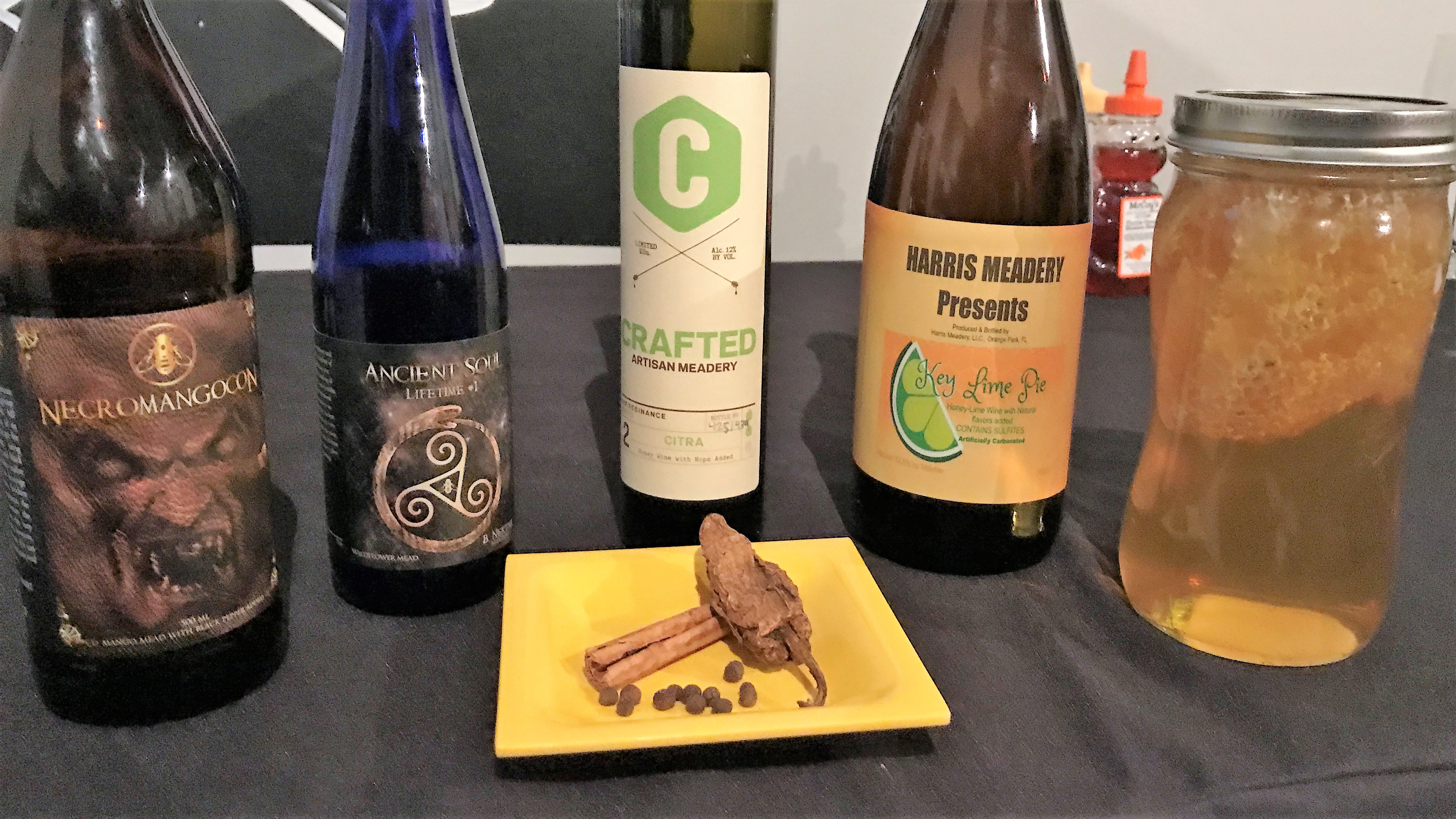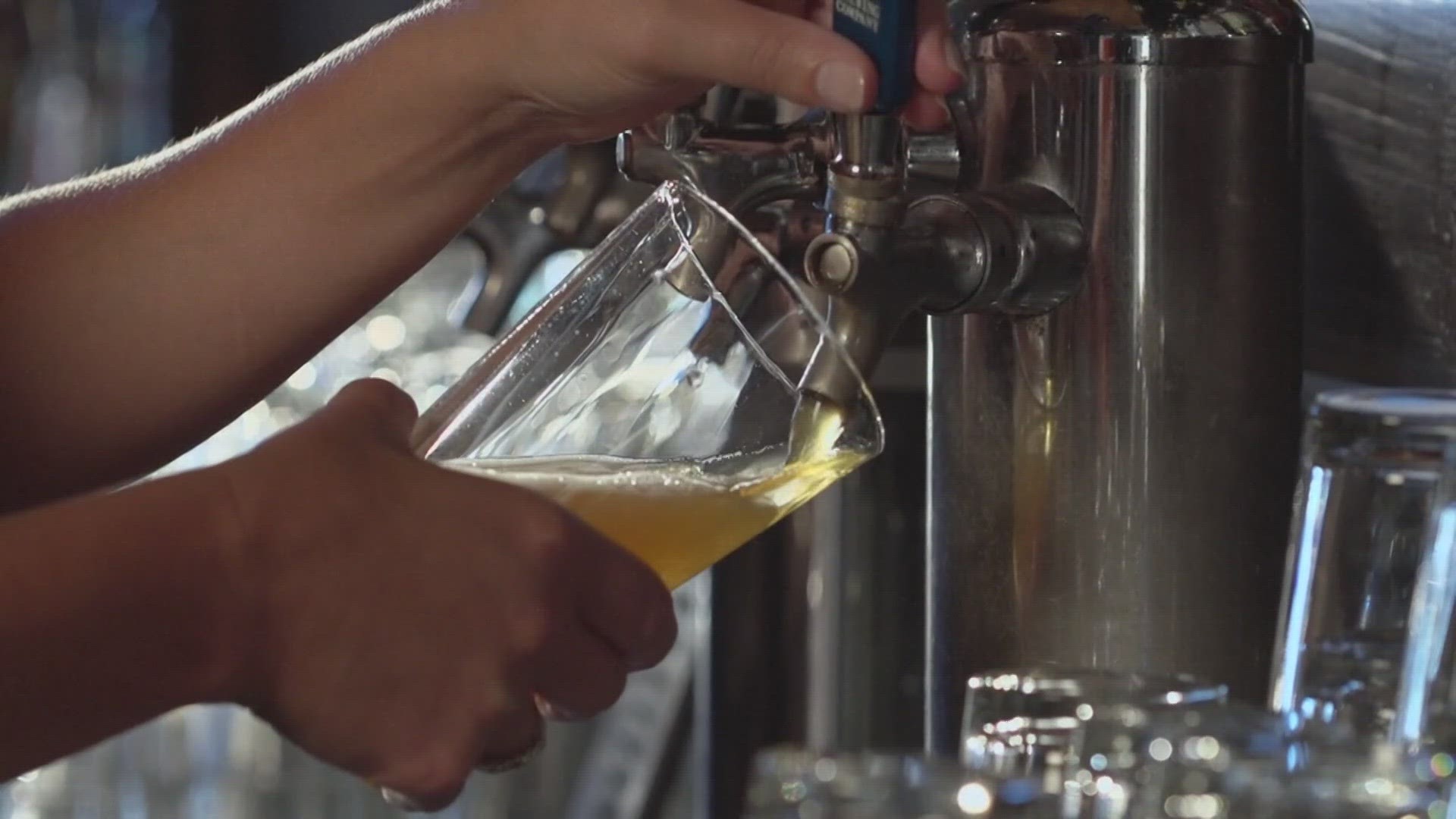I am very interested in the steps brewers are taking to resurrect old styles of beer, ciders and meads. Last year I attended an event at Total Wine on this subject. So when I saw Alewife Craft Beer Bottle and Tasting Room offering a class on Mead, co-taught by our own John Harris of Harris Meadery, I immediately signed up.
I'll admit, I truly thought I'd be telling you about how Mead is made only. Instead I want to tell you about this amazing monthly class being taught at Alewife. Oh and how Mead is made!
I've been to events at Alewife before and they were extremely interesting and entertaining, but this was my first 'beer school.' Many years ago I wanted to learn about wine, so every Sunday we went to The Grotto (R.I.P.) to wine school. I learned so much about styles of wine, tasting notes and flavor profiles that we even bought a wine fridge for storage.
The wine fridge now has more beer bombers than wine, but the knowledge truly has transferred into the craft beer world. The flavor profiles are surprisingly similar and I tend to sniff and swish my first mouthful of beer to see what flavors are present. This is what prompted me to try Beer School.
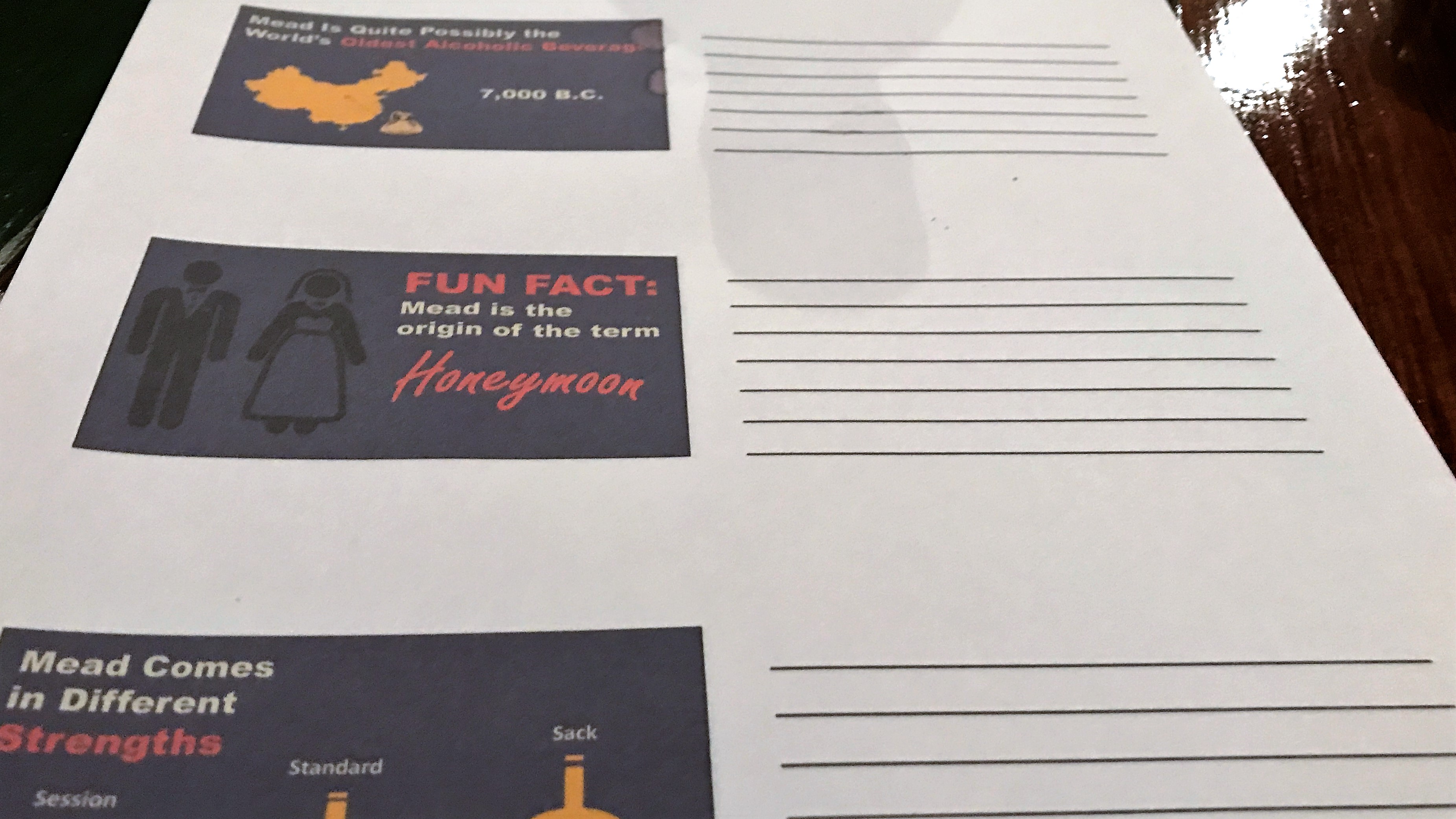
Upon arrival, Bob (aka Mead-Head aka Dad) and I found a multi-page flyer on Mead, with room for our own notes. Since I had forgotten my notebook, I was very pleased to find something to jog down information. Kelly Pickard, co-owner of Alewife and a certified Cicerone is the 'teacher' for these events. In the case of this month's event, she asked John Harris to assist her in what goes into brewing Mead.
John is a passionate advocate of Mead and Bees. He has his own hives. Unfortunately they don't yield enough honey to supply the Mead. It takes a LOT of honey to make Mead. He's been a home brewer since 1991 and making Mead since 2001. Since the weather was poor and people were late, we had a few minutes to talk with him prior to class.
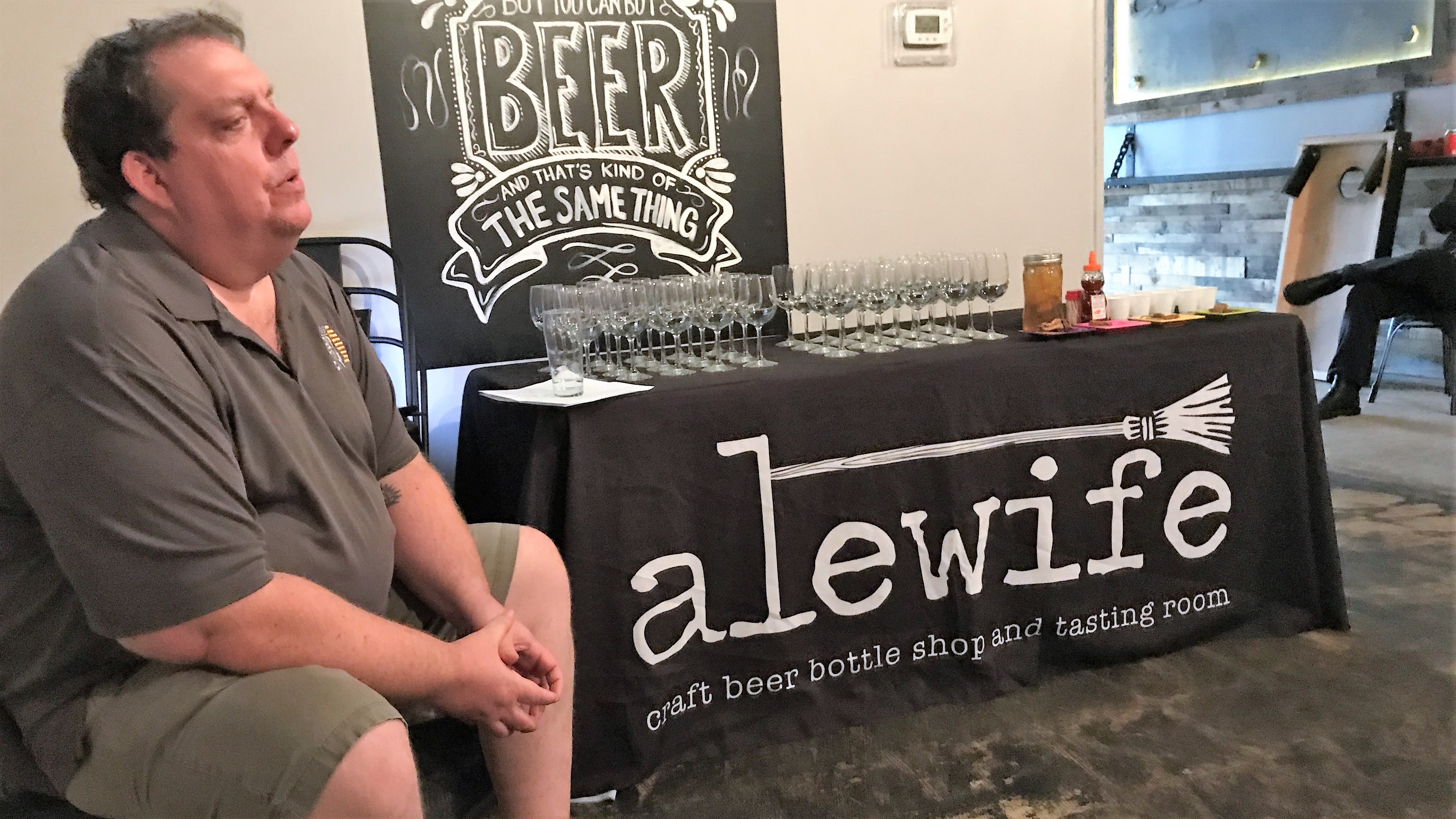
When class started, Kelly gave us the specifics on the styles of Mead, such as Dry, semi-sweet and sweet. Mead also comes in different categories according to the ABV. As in craft beer, session style is seven percent or lower. Standard is mead in the eight to fourteen percent level and Sack refers to those greater than fourteen percent.
John says most meads are in the session or standard category. Making sack meads is more costly and takes a lot longer to brew. Session or standard meads can be brewed in a week or so.
Meads can also be still or sparkling called Petillant for those that only have residual carbonation from the fermentation process or Sparkling, think champagne.
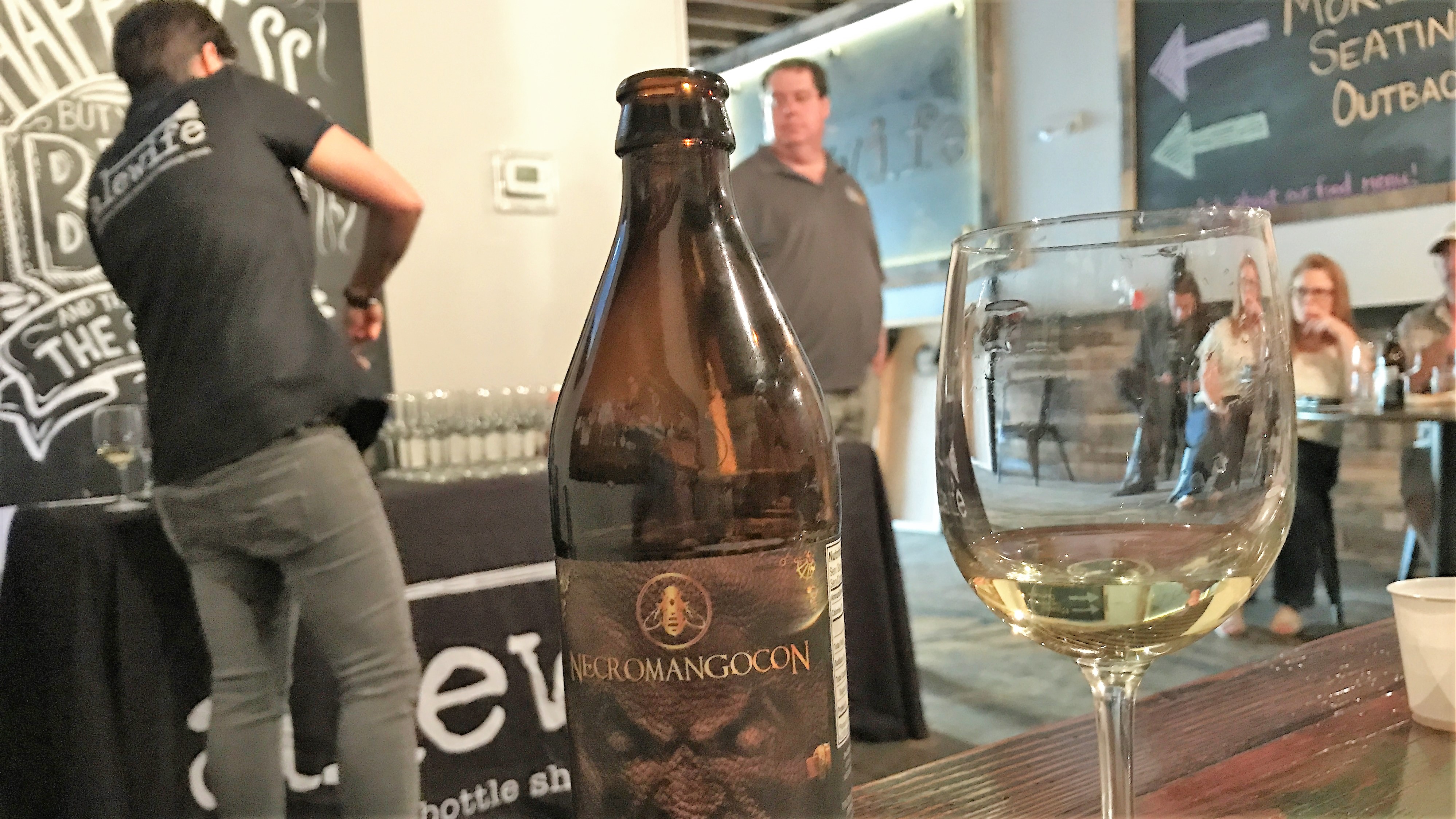
What I found so interesting was the number of home brewers in the class who were interested in the specifics of the brewing process. John explained that mead must be oxygenated during the initial fermentation. He explained the carbon dioxide is removed in de-gassing daily and a minute or so of oxygen is injected into the vessel. This is completely opposite the beer brewing process.
The oxygenation happens daily until the sugar is reduced by half, then it must stop. Like wine, mead can be ruined if too much oxygen reaches it. John told us that not doing this process can create an explosion!
We sampled three different honeys, including a batch straight from John's hives. Honey takes on flavor depending upon what the bees gathered. John's honeybees have been feasting on Meyer Lemon pollen, producing a light yellow, citrus-y honey.
Unlike beer, honey is not boiled to create mead. Honey has many beneficial qualities and they want to keep those intact in the mead.
Overall, I learned a lot about Mead during the class. We sampled 4 different honey wines, including B.Nectar's Necromangocon, a fruit and spice mead and B.Nectar's Ancient Soul that was simply honey. We also sampled Crafted Hop Resinance dry hopped with citra, which doesn't make it beer. Mead's are characterized by having 51 percent of the fermentable sugar being honey. Beers use grains and malts for that, however oats and rice can be added to mead. They are called Braggot Meads.
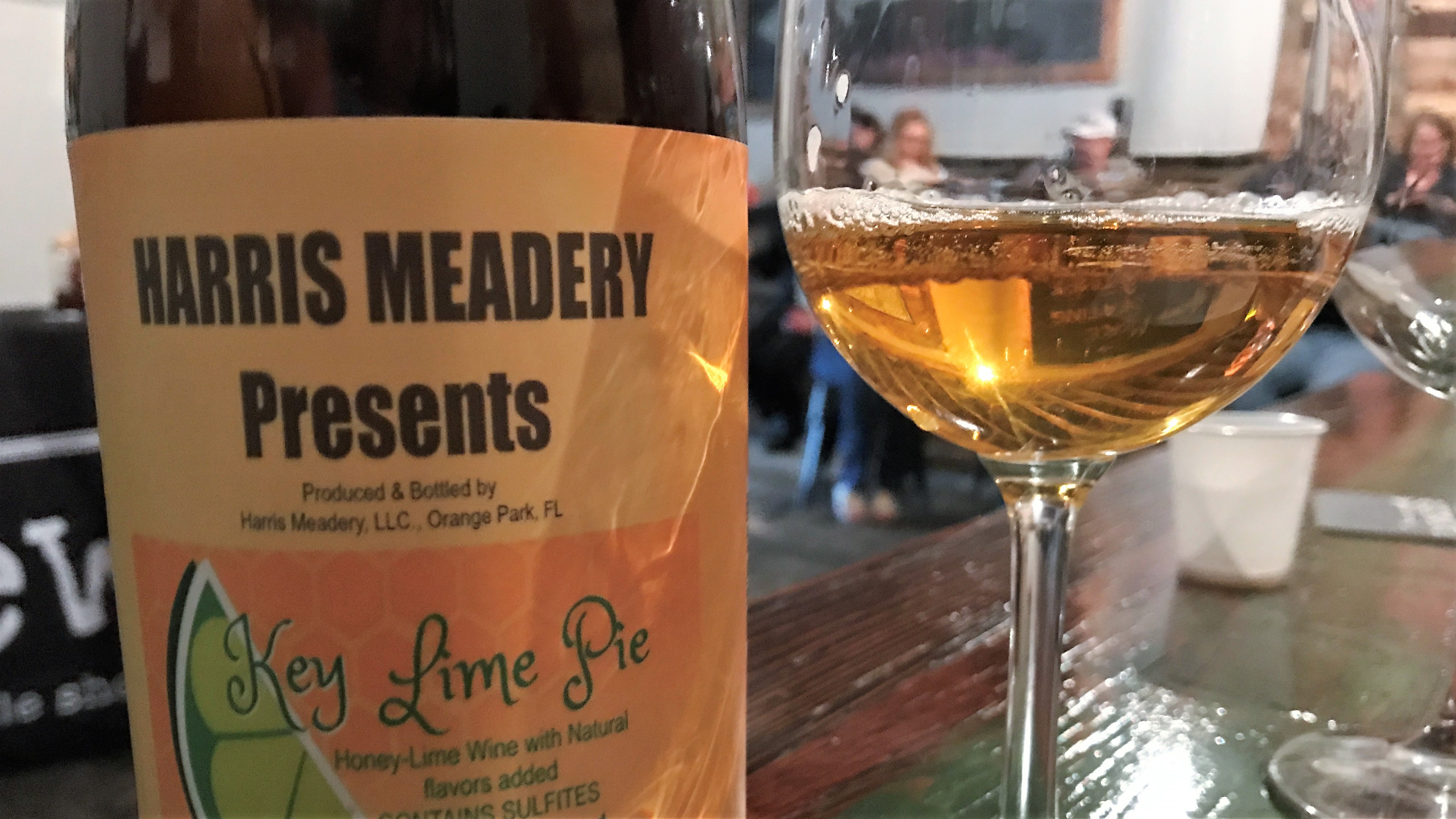
Of course, my favorite was Harris Meadery's Key Lime Mead. The Crafted dry hopped one was tasty, the hops were present in more of a resinous floral note.
Alewife holds Beer School the first Tuesday of every month. They keep the schedule up on their webpage. The experience was awesome and I see a couple more classes in my future. Hello, Belgian! How about beer and cheese pairings? Classes are $20. Usually an event page gives a link to that tasting, however I believe you can also book in person.
A great time for sure!
Have you been to our Facebook page yet? I try to re-post events, like beer school there as well as daily schedules. Join the conversation!
Cheers y'all!

